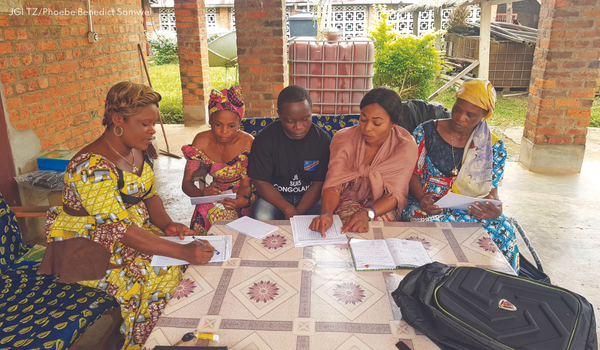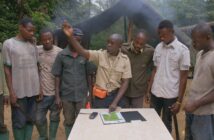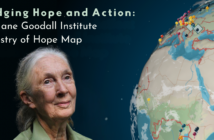The JGI Landscape Conservation in Western Tanzania (LCWT) initiative funded by USAID that uses our Tacare approach of community-led conservation has had a tremendous impact on Neema Elias, a 33-year-old mother of three. In 2018, when LCWT began working in Katumba Settlement, Neema joined a COCOBA—a community conservation banking group supported by JGI. She immediately began benefiting from the microcredit sustainability-focused loans, working to provide for her family. She then learned how to build and market fuel-efficient stoves with training from JGI and continues to build and sell these stoves to other households. These stoves reduce the amount of wood needed to cook, which in turn reduces the burden of collecting wood, thereby preserving local forests.
In 2020, Neema added beekeeping to her income-generating activities, and in 2021, she brought her wild mushroom collection skills to a collection group organized by JGI. In addition to expanding her skills and businesses, Neema and her husband also benefit from the LCWT’s family-planning support. She credits this support with giving her time and resources to pursue many endeavors and better provide for her family in ways that also protect natural spaces upon which all living beings depend.
In Democratic Republic of the Congo (DRC), previous JGI regional surveys have shown women are the primary sellers and traders of wild meat—including great apes – which is illegal and a huge threat to wildlife populations. Through partnerships with local communities, JGI has developed women’s groups, including one called “Amka kwa mabadiliko” (“Wake up to change”).
This JGI project supports individuals seeking alternatives to the sale of hunted fauna. Through producing juice to sell at her local Lubutu market, Elysée demonstrates the potential for members of the local economy to find humane, sustainable means to protect their own livelihoods. Wamelo Ilonge Elysée is paving a new path for her and other women in DRC.
Every single day, JGI is working with local communities who are leading the way in creating better futures for themselves, and their ecosystems. Individuals like Wamelo and Neema demonstrate the promise and potential of every individual making a difference through holistic approaches that build a better tomorrow for all. Learn more and support our programs at janegoodall.org/donate.







